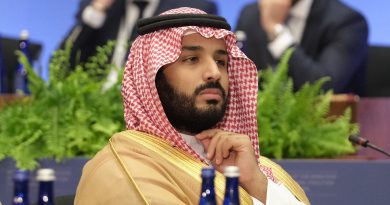Focus on Elections: Reformed Dictator Wins Nigerian Presidential Race
By Lucy Njuguna
Staff Writer
Nigeria’s presidential and national Assembly elections were held at the end of March, after a six-week postponement due to insurgent violence caused by Boko Haram. Previously scheduled for mid-February, 47 percent of the country turned out to vote on March 28. Nearly 30 million votes were cast, according to Nigeria’s Independent National Electoral Commission. The vote was largely framed as a referendum on current President Goodluck Jonathan’s presidency, which has been tumultuous due to security issues within the country.
President-elect Muhammadu Buhari won in a landslide after receiving over 15 million votes, outpacing Jonathan by nearly 3 million votes. Buhari will officially be sworn in as President of Nigeria on May 29, and already announced an ambitious plan to address the needs of Nigerians. This plan includes an expansion of the solar technology program that Buhari implemented in 1998, in line with his pledge to develop Nigeria’s electricity system in his election manifesto. According to the Daily Post Nigeria, Buhari stated that he would “generate, transmit, and distribute electricity on a 24/7 basis whilst simultaneously ensuring the development of sustainable/renewable energy by 2019.”
Buhari has already had a taste of power — he led a successful coup in 1983 that centered on what he called the “war on indiscipline.” Critics of Buhari, according to the Daily Mail, point out that his previous leadership stint involved heavy-handed tactics, but Buhari has marketed himself as a progressive democratic candidate. The table certainly seems to be set for a great deal of positive change as Nigerians yearn for security within their borders, as the country moves forward as a regional leader.
It seems that events in Nigeria have come full circle, as Buhari has once again emerged on the scene at a time when chaos seems to be bubbling below the surface. Buhari has seized this opportunity and leveraged his experience to become the first candidate to defeat an incumbent leader in Nigeria’s democratic history. As a victory, this should be especially endearing for Buhari who lost the last three elections.
Buhari is the leader of the All Progressives Congress (APC) which also carried an impressive victory overall, winning 19 of the 28 gubernatorial posts. However, BBC Africa correspondent Chris Ewokor notes that the APC failed to win in any of Nigeria’s five oil-producing states. This will be of huge concern to President-elect Buhari, as militant groups could disrupt oil production and starve the federal government of much-needed oil revenue.”
Critics of Buhari point out his 20-month military dictatorship serves as proof of a high-handed leadership style and that it may be a prediction of future events, reported the Daily Mail. Buhari for his part, however, has run a campaign based on the promise that he will promote
democracy in this new age which has seen elections become more peaceful than in the past. As president, Buhari will enter office with multiple issues that will need to be addressed. Security and economic growth will likely be the focus from the outset. Due to this, Buhari may have an opportunity to quickly ascend as a leader on the international stage as all eyes will be on this administration.

